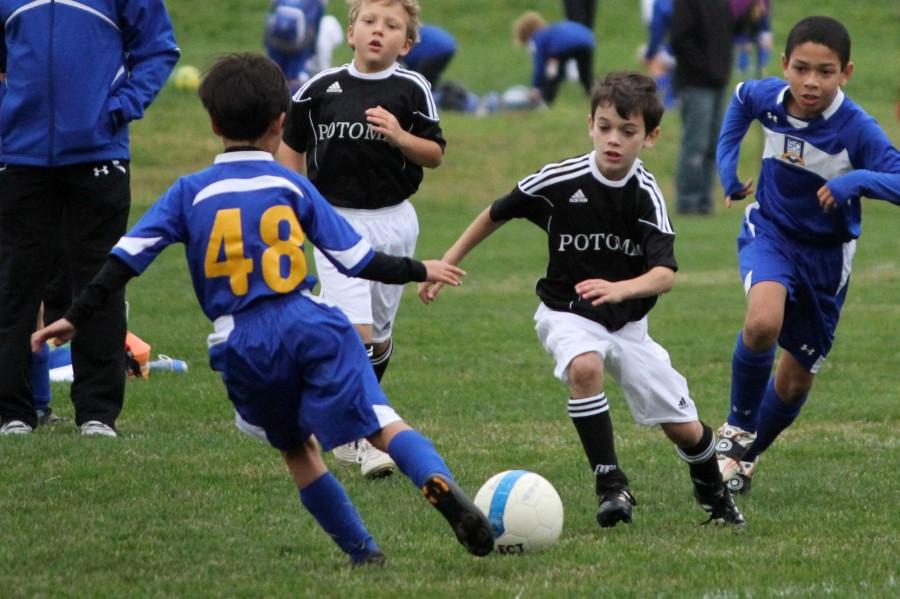Under Pressure
December 15, 2014
Student athletes are held to unbelievably high standards. Coaches and teammates idolize athletes that endure injury yet still compete at a high level. The problem that has arisen is drawing the fine line between “sucking it up for the team,” and the preserving the athlete’s mental and physical health.
All sports have consequences on athletes’ bodies. It is an inevitable part of the game. Players fight through this pain, because of their love and dedication for the sport. Take professional basketball for example: “When I sit out, it’s not because of this year,” Derrick Rose said in an interview with Charles Barkley. “I’m thinking long term. I don’t want to be at my son’s graduation all sore just because of something I did in the past.” Public opinion has attacked him for refusing to play despite his injuries.
So the question is when is it enough? Does the love of your sport ever outweigh the mental and physical trauma that is an almost unavoidable consequence of playing?
I ran on an untreated stress fracture during conference for cross-country and ended up in a boot for six weeks as a consequence. Limping two days prior to the race, I convinced myself I was fine, because I took Ibuprofen with every meal and ice bathed twice a day. Two miles into the race I lost feeling in my ankle and had to limp the final mile. I finished, but a full five minutes slower than my projected time. I did not feel pressure from my coaches to run, rather it was the pressure I put on myself and what I thought I was capable of.
But, runners are not alone in doing crazy things to compete. It is a small group of people on the team that go overboard. Every sport has sacrifices that the players willingly take in order to get on the next level. Swimmers get rid of all their hair to shave off the decisive fraction of a second that can be the difference of winning. Wrestlers cut weight to stay competitive in their meets. Football players lift more to knock down their competitors harder during games. The list goes on.
All of the sacrifices that we make usually have positive results, and, if done correctly, minimum consequences to our bodies. But we all know that one kid on the team that takes it too far; they become obsessed with cutting weight, they run on an injury, or lift too much and get hurt. My advice: don’t be that kid. Because I was, and I didn’t listen to what my body was telling me, and ended up paying six weeks for it. When people hear these stories it reflects poorly on the team as a whole and brings a negative image to the sport. The extreme cases are when the physical consequences overcome the benefits the sport can offer you.
Society’s role in the matter has also had enormous effects. There have been, and always will be, pressure pinned on athletes. Pressure to succeed in school, sports and extracurricular activities controls the athlete’s life during season. To deal with that pressure, and need to succeed at a high caliber, some of the “crazy things” athletes do to compete become frightening.
Wrestlers who become fixated with the scale could have eating problems follow them into the off season. According to Vanderbilt University, “wrestlers on one team used laxatives (5%), and vomiting (11%) to lose weight.” Swimmers, who often sleep for only three to five hours every night because of their heavy schedules, can get sick from a weak immune system. Football players who may use performance enhancing drugs in order to get ahead are not only a risk to themselves, but to all players on the field. This is where the fine line becomes blurred and the difficult ethical decision of whether or not to play takes center stage. Here is where the sacrifices the athlete makes become a problem. The player sees that it is socially acceptable to play on injury if they can compete well for the short term, because the ends justify the means.
I am not talking exclusively about LT; the struggles of a student athlete are prominent nationwide. LT does a good job of teaching the students the dangers of performance enhancing drugs, and our athletic training staff does an amazing job of checking for concussions and injuries. But, just because we cross our t’s and dot our i’s doesn’t necessarily mean that the problem isn’t there. Anytime there is the competitive atmosphere and cut throat expectations placed on these kids, there is going to be a consequence for it.
As an LT community we should focus on the harsh realities these athletes face instead of encouraging these problems by ignoring them. Once these players can put what they are doing into perspective and realize that their health is more important than a high school game, these problems will begin to fade.





















![Movie poster for '[Rec]" (2007).](https://www.lionnewspaper.com/wp-content/uploads/2023/04/rec-640x900.jpg)


